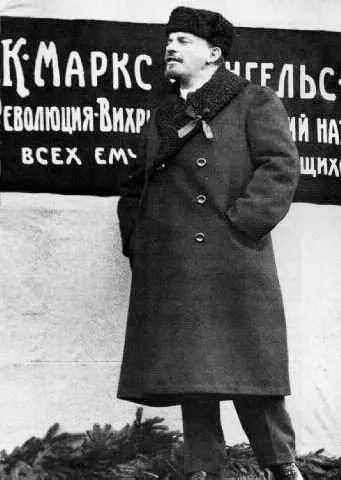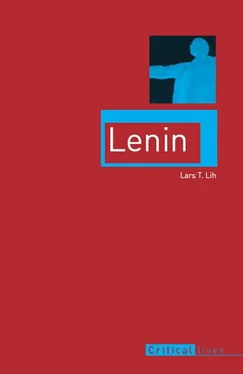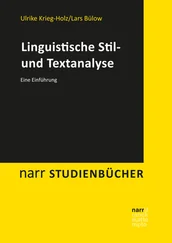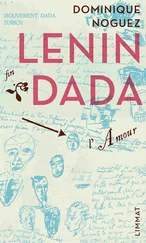Lars Lih - Lenin
Здесь есть возможность читать онлайн «Lars Lih - Lenin» весь текст электронной книги совершенно бесплатно (целиком полную версию без сокращений). В некоторых случаях можно слушать аудио, скачать через торрент в формате fb2 и присутствует краткое содержание. Город: London, Год выпуска: 2012, ISBN: 2012, Издательство: Reaktion Books, Жанр: Биографии и Мемуары, История, на английском языке. Описание произведения, (предисловие) а так же отзывы посетителей доступны на портале библиотеки ЛибКат.
- Название:Lenin
- Автор:
- Издательство:Reaktion Books
- Жанр:
- Год:2012
- Город:London
- ISBN:9781780230030
- Рейтинг книги:3 / 5. Голосов: 1
-
Избранное:Добавить в избранное
- Отзывы:
-
Ваша оценка:
- 60
- 1
- 2
- 3
- 4
- 5
Lenin: краткое содержание, описание и аннотация
Предлагаем к чтению аннотацию, описание, краткое содержание или предисловие (зависит от того, что написал сам автор книги «Lenin»). Если вы не нашли необходимую информацию о книге — напишите в комментариях, мы постараемся отыскать её.
Lenin — читать онлайн бесплатно полную книгу (весь текст) целиком
Ниже представлен текст книги, разбитый по страницам. Система сохранения места последней прочитанной страницы, позволяет с удобством читать онлайн бесплатно книгу «Lenin», без необходимости каждый раз заново искать на чём Вы остановились. Поставьте закладку, и сможете в любой момент перейти на страницу, на которой закончили чтение.
Интервал:
Закладка:

Lenin’s mood of optimism came only after a year of life-and-death crises. What we may call his ‘anniversary period’ started in autumn 1918 around the time of the first anniversary of the October revolution and lasted until summer 1919. In Lenin’s confident view during this period the Russian workers were leading the country down the road toward socialism. Despite all the difficulties and challenges, further progress down that road was guaranteed – at home by the class war in the villages, and abroad by the incipient socialist revolution. The heroic scenario of the proletariat as the vozhd of the narod was vindicated. As Lenin put it on 7 November 1918 at the unveiling of a monument in Moscow to Marx and Engels:

The great world-historic service of Marx and Engels is that they showed the workers of the world their role, their task, their mission, namely, to be the first to rise in the revolutionary struggle against capital and to unite around themselves in this struggle all working and exploited people.
We are living through a happy time, when this prophecy of the great socialists is beginning to be realized. 42
5. Beyond the ‘Textbook à la Kautsky’
In early 1923, weeks before his final incapacitating stroke, Lenin wrote about Karl Kautsky for the last time: ‘It need hardly be said that a textbook written à la Kautsky [ po kautskomu ] was a very useful thing in its day. But it is time, for all that, to abandon the idea that it foresaw all the forms of development of subsequent world history. It would be timely to say that those who think so are simply fools.’ 1
The contrast between this dour assertion and Lenin’s mood during what I have termed his ‘anniversary period’ – late 1918 through summer 1919 – is striking. During the anniversary period Lenin called Kautsky a renegade because Kautsky was turning his back on his own earlier predictions just as they were coming true. But looking back in 1923 Lenin stated in effect that only a fool would claim (as he himself had done in 1918) that ‘things have turned out just as we said they would’.
Lenin’s heroic scenario had always been very strongly rooted in the ‘textbook à la Kautsky’ – orthodox ‘revolutionary Social Democracy’ of the Second International – and he had gloried in the fact. When and why did he move from his usual stance of aggressive unoriginality to one of reluctant originality? According to the most common account, Lenin’s rethinking began in early 1921 with the introduction of the New Economic Policy (NEP). Up to late 1920 (we are told) Lenin and the Bolsheviks were so carried away with a feeling of euphoria that they started to believe that harsh civil-war policies – later given the name of ‘war communism’ – represented a short cut or even a leap into full communism. Only economic collapse and peasant rebellion in the winter of 1920–21 convinced them of their mistake. Lenin finally began to understand that the peasants required material incentives in order to produce. The process of rethinking culminated in the bundle of articles and drafts from late 1922 and early 1923 that were later termed ‘Lenin’s testament’. Some writers view Lenin’s rethinking as fundamental, others as relatively superficial, but all tie it strongly to NEP.
The standard account is profoundly misleading. In reality Lenin’s rethinking began in 1919, just as soon as he realized that things were not ‘turning out just as we said they were’. There was no mass euphoria among the Bolsheviks in 1920, no collective hallucination that Russia was on the eve of full communism. On the contrary the Bolsheviks were painfully aware of the manifold compromises and defeats that were leading them away from socialism. The dramatic changes that came with the introduction of NEP in 1921 were just another round of painful compromises. Lenin’s outlook in his final writings can be traced back to concerns that began to surface in 1919.
In what follows we focus on Lenin’s personal evolution. Lenin had been very explicit about the Marxist justification for undertaking a socialist revolution in backward Russia. Abroad, the Russian revolution would spark off revolutions in more advanced countries. At home, the workers had moved beyond the alliance with the peasantry as a whole. Since they were now allied solely with the exploited labourers in the villages, they were free to move on from a merely democratic revolution to the socialist revolution. Lenin was equally insistent that ‘soviet democracy’ had the mission of utterly remaking the state apparatus by cleansing it of ‘bureaucratism’. He was therefore profoundly disappointed when he was forced to realize that these things were not happening – not in the short term, nor even in the medium term. Like a cartoon character who keeps walking in midair even though he has left the cliff behind, Lenin no longer had the solid basis of his original scenario to support his journey. He had to come up with an explanation of why Russia’s socialist revolution was not doomed to crash to the ground.
All through his life Lenin had always stressed the continuity of his views. He argued that the 1905 revolution vindicated the pre-revolutionary Iskra platform, that his wartime Left Zimmerwald platform did not deviate from Kautsky-when-he-was-a-Marxist, and that the October revolution had orthodox Marxist credentials. From 1919 he was forced to admit that some basic Bolshevik assumptions had not yet been vindicated, yet true to his life-long habit he minimized the extent of the necessary modifications. In the 1923 article quoted above, he characterized his changes to the ‘textbook à la Kautsky’ as ‘certain amendments (quite insignificant from the stand point of the general development of world history)… certain distinguishing features… certain partial innovations… somewhat unusual conditions… such details of development (from the standpoint of world history they were certainly details) as the Brest-Litovsk peace, the New Economic Policy, and so forth’. 2
To understand the adjustments that Lenin was forced to make to his heroic scenario, we need to take a look at some of these ‘details of development’ that may have been small in the scale of world history but that loomed large in the scale of the few years remaining to Lenin.
The Challenge of Events
From many points of view Bolshevik survival was a miracle and Lenin felt that, no matter what else was urged against Bolshevism, the survival of the proletarian vlast was a bottom-line justification for the great deed of October 1917. Yet he could not hide from himself that some fundamental expectations had not been met.
Between 1918 and 1922 there were so many challenges to Bolshevik rule that it is perhaps better to speak of ‘civil wars’ in the plural. The Whites, who relied principally on the elite classes of tsarist Russia, were led by former officers such as Admiral Kolchak in Siberia and General Denikin in south Russia. Peasant rebels, collectively called the Greens, mounted a series of revolts both local and large-scale. National minorities in the border regions also took advantage of the temporary breakdown of central authority to declare independence. Some were successful (Poland, Finland, Baltic states); others were reincorporated into Soviet Russia. Finally, foreign powers such as France, the United States and Japan intervened in the hope of toppling Bolshevism.
Читать дальшеИнтервал:
Закладка:
Похожие книги на «Lenin»
Представляем Вашему вниманию похожие книги на «Lenin» списком для выбора. Мы отобрали схожую по названию и смыслу литературу в надежде предоставить читателям больше вариантов отыскать новые, интересные, ещё непрочитанные произведения.
Обсуждение, отзывы о книге «Lenin» и просто собственные мнения читателей. Оставьте ваши комментарии, напишите, что Вы думаете о произведении, его смысле или главных героях. Укажите что конкретно понравилось, а что нет, и почему Вы так считаете.












